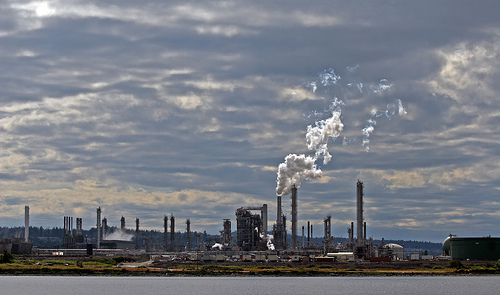Editor’s note: Later posts in this series revise the loophole’s size to $59 million, according to newly available 2014 data from the WA OFM. The $41 million noted below is based on earlier calculations.
Big news just now on Washington’s accidental tax loophole for big oil: the House voted to close it as part of a larger package of reforms to even out the state’s tax code and raise money for public education. Closing the “extracted fuel use tax exemption”—the tongue-twisting name for our special giveway to big oil—will redirect $41 million per biennium from oil refiners to classrooms.
Governor Inslee has already endorsed the move in his budget, so the last obstacle to the loophole’s closure is the state Senate where a functional Republican majority appears more inclined to protect the tax preference for oil companies.
That’s a troubling position because there are few clearer cases of mistaken tax policy than this one. The loophole was first created in 1949, apparently as a small benefit to sawmills. At the time, Washington was home to exactly zero oil refineries, but when they later moved into the state, refiners ended up claiming fully 98 percent of the loophole’s benefit. Even the state’s formal bipartisan tax review committee can identify no public policy purpose for the loophole.
It’s time we close it.
Check out Washington Environmental Council’s press release for more details on this afternoon’s vote.
You can find more information about the tax loophole here:
- Hog-Wild Loophole
- The Accidental Tax Loophole
- Office of Financial Management “Tax Exemption Fact Sheets”
- The Joint Legislative Audit and Review Committee (JLARC) assessment
- The Department of Revenue summary
- The RCW

